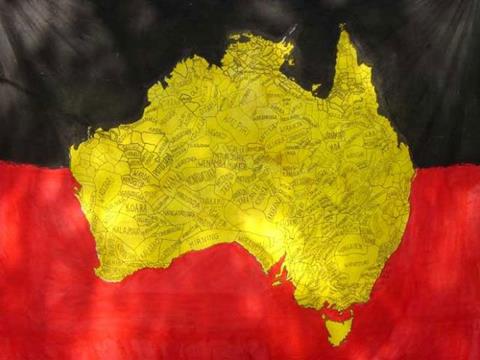Government called on to rule out extinguishment of native title in Adani mine case

Australian Lawyers for Human Rights (ALHR) has expressed support for a call by members of the Wangan and Jagalingou (‘W&J’) People for the Government to rule out any action which would extinguish native title, following the dismissal of a challenge by the Federal Court last month.
On 17 August 2018, the Federal Court dismissed a challenge to the validity of an Indigenous Land Use Agreement between Adani, the State of Queensland and the W&J People (‘the Adani ILUA’). The case was brought by five of the 12 individuals who make up the W&J native title ‘applicant’, a sub-group of the traditional owners based on family descent lines within the W&J People. An appeal of the decision was lodged with the Full Court of the Federal Court on 10 September 2018.
The Federal Court’s decision comes in the aftermath of reform to the Native Title Act 1993 (Cth) (‘NTA’) in June 2017. These reforms clarified that the NTA does not require ILUAs to be signed by all members of the applicant to be valid. This case demonstrates how these reforms, combined with other provisions of the NTA, limit the scope for minority perspectives within a native title claimant group to be given weight in agreement-making processes. ALHR is concerned about this in light of the potential gravity and far-reaching consequences of the subject matter of some ILUAs, including the potential for native title to be permanently extinguished.
Adani’s proposed Carmichael coal mine falls within the claim area of the W&J native title application. The NTA requires mining companies to obtain agreement from the relevant traditional owners in respect of any development proposal. In April 2016, a meeting was held at which the W&J People voted 294 to one in favour of entering into the agreement; however, only seven of the 12 members of the applicant signed the document.
Prior to the amendments in June 2017, McGlade v Native Title Registrar [2017] FCAFC 10 (‘McGlade’) held that all individual persons comprising the applicant must sign an agreement for it to become a valid ILUA. Under this interpretation of the NTA, the legitimacy of the Adani ILUA was uncertain, but the subsequent amendments swiftly confirmed its validity despite it lacking signatures from five of the 12 members of the applicant.
In light of this reform, the five individuals could not challenge the ILUA on the basis that it failed to comply with the assent requirements of the NTA. Instead, they mounted challenges on the basis that the attendance record at the April 2016 meeting showed that many attendees were not present at previous meetings, and are not W&J native title claimants. While these challenges were ultimately dismissed by the Federal Court, there remains a proportion of the W&J People who strongly disagree with the proposal outlined in the Adani ILUA.
‘There is no doubt that native title law should be an important tool for advancing and securing land rights and economic opportunities for Aboriginal and Torres Strait Islander people. However, this case highlights the incapacity of the NTA to effectively grapple with the diversity of interests that exist in some native title claim groups, and the significant power imbalances that exist between native title groups, the government, and industry groups’ ALHR spokesperson Bethany Moore said.
Native title law aims to protect some rights of native title claimants and holders, including the right to negotiate. However, the NTA has been criticised by some Aboriginal and Torres Strait Islander leaders on the basis of the limits of these rights in practice. Tony McAvoy SC has argued that the native title system ‘embeds racism’ and is inconsistent with the United Nations Declaration on the Rights of Indigenous Peoples (UNDRIP). In particular, McAvoy argues that the NTA fails to effectively require that governments and resource companies obtain the ‘free, prior and informed consent’ of native title claim groups in agreement-making. Adrian Burragubba, one of the spokespeople for five dissenting members of the applicant in the Adani ILUA case, has reaffirmed this view. Burragubba has stated that ‘our position has always been the same – that there has never been any free or informed consent with any agreement with Adani.’
The legislature must acknowledge that ILUAs occupy a highly-contested space at the interface of state, corporate, and native title rights and interests. ALHR is concerned that the agreement-making provisions of the NTA fail to satisfactorily address the heterogeneity of native title claim group interests. ALHR calls on the Government to ensure that the processes for agreement-making and safeguards in the NTA’s scheme meet Australia’s obligations under the UNDRIP. Further, ALHR calls on the Government to ensure that ILUAs are concluded with the free, prior and informed consent of native title claimants and holders.
Contact: Matt Mitchell, ALHR media manager 0431 980 365.
ALHR was established in 1993 and is a national association of Australian solicitors, barristers, academics, judicial officers and law students who practise and promote international human rights law in Australia. ALHR has active and engaged National, State and Territory committees and specialist thematic committees. Through advocacy, media engagement, education, networking, research and training, ALHR promotes, practices and protects universally accepted standards of human rights throughout Australia and overseas.



